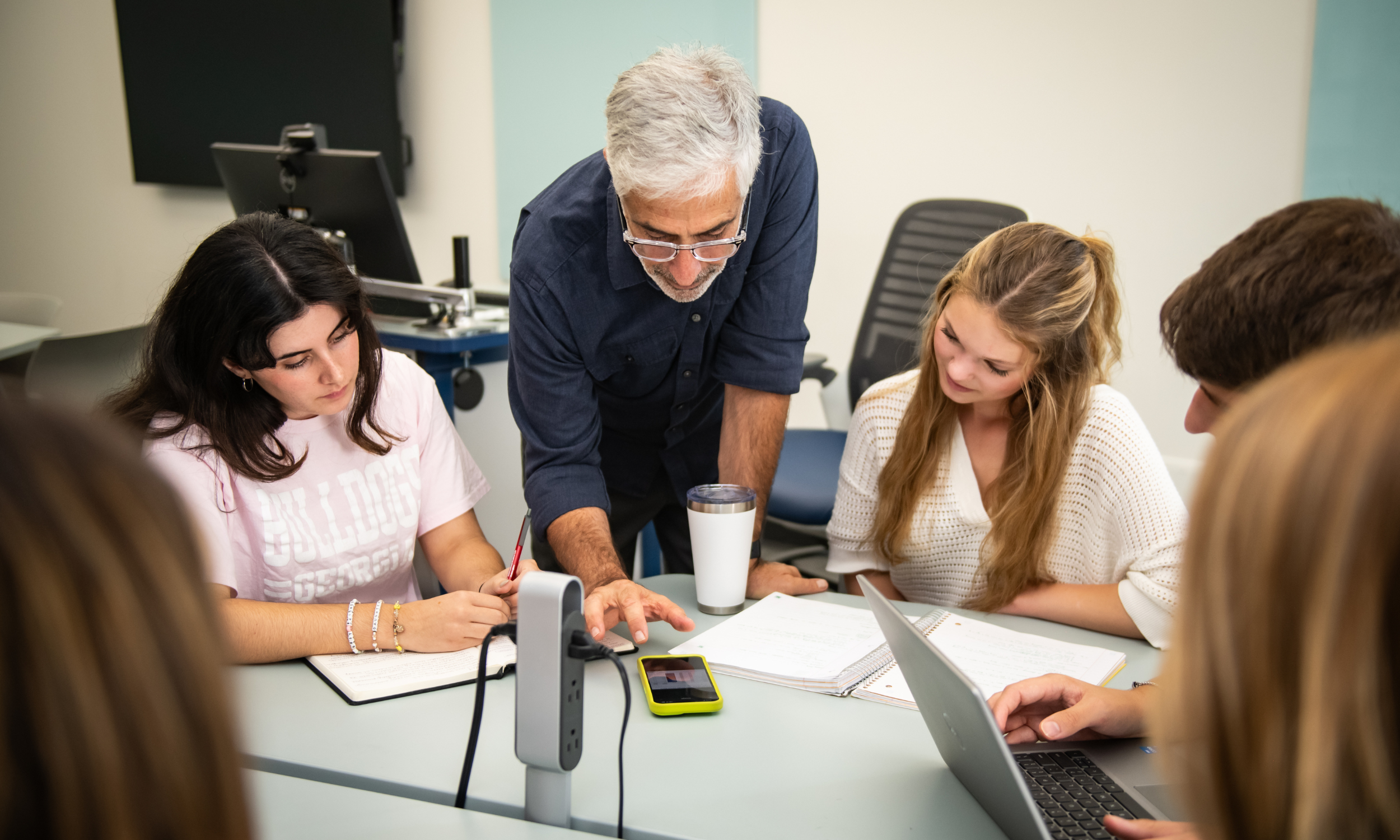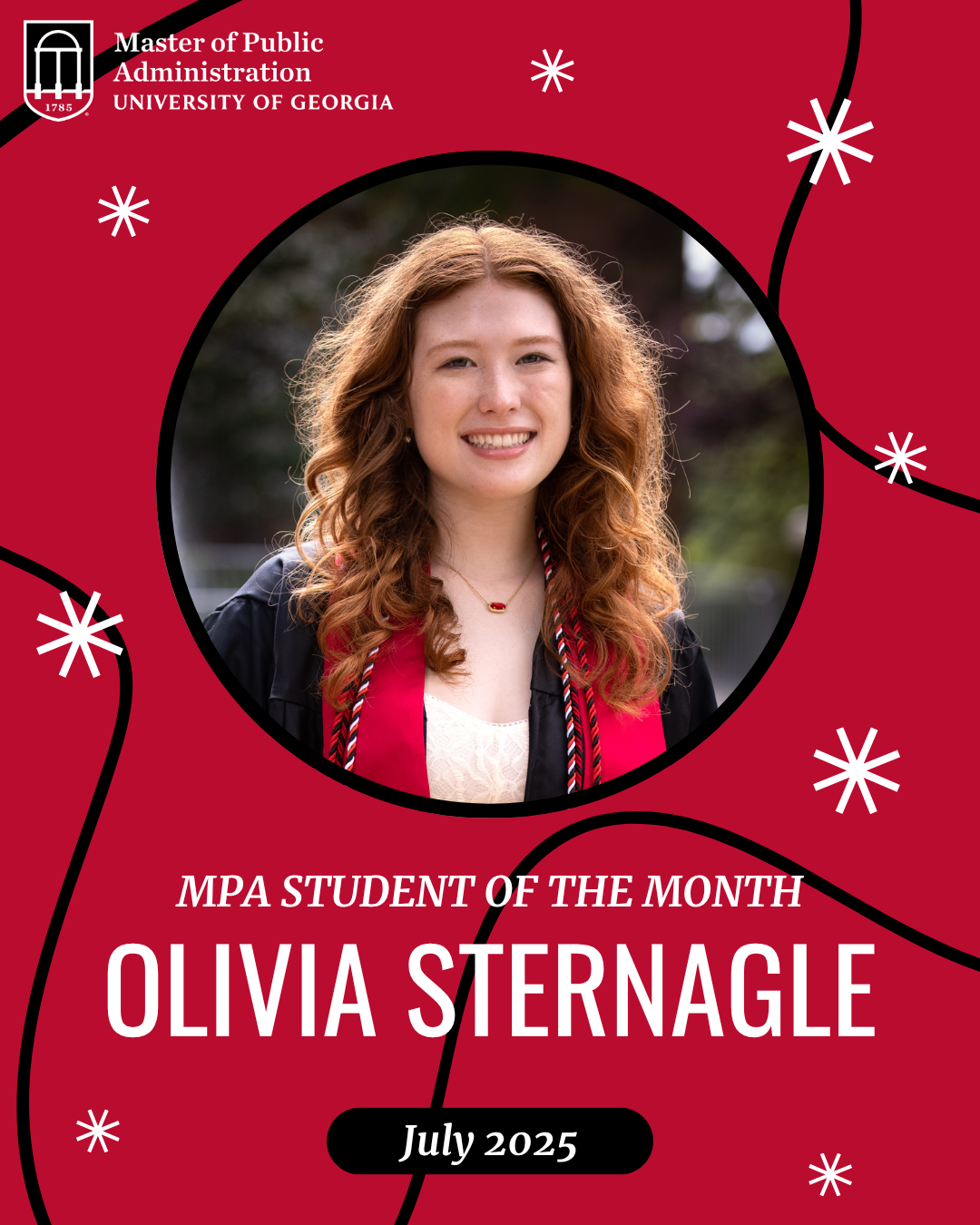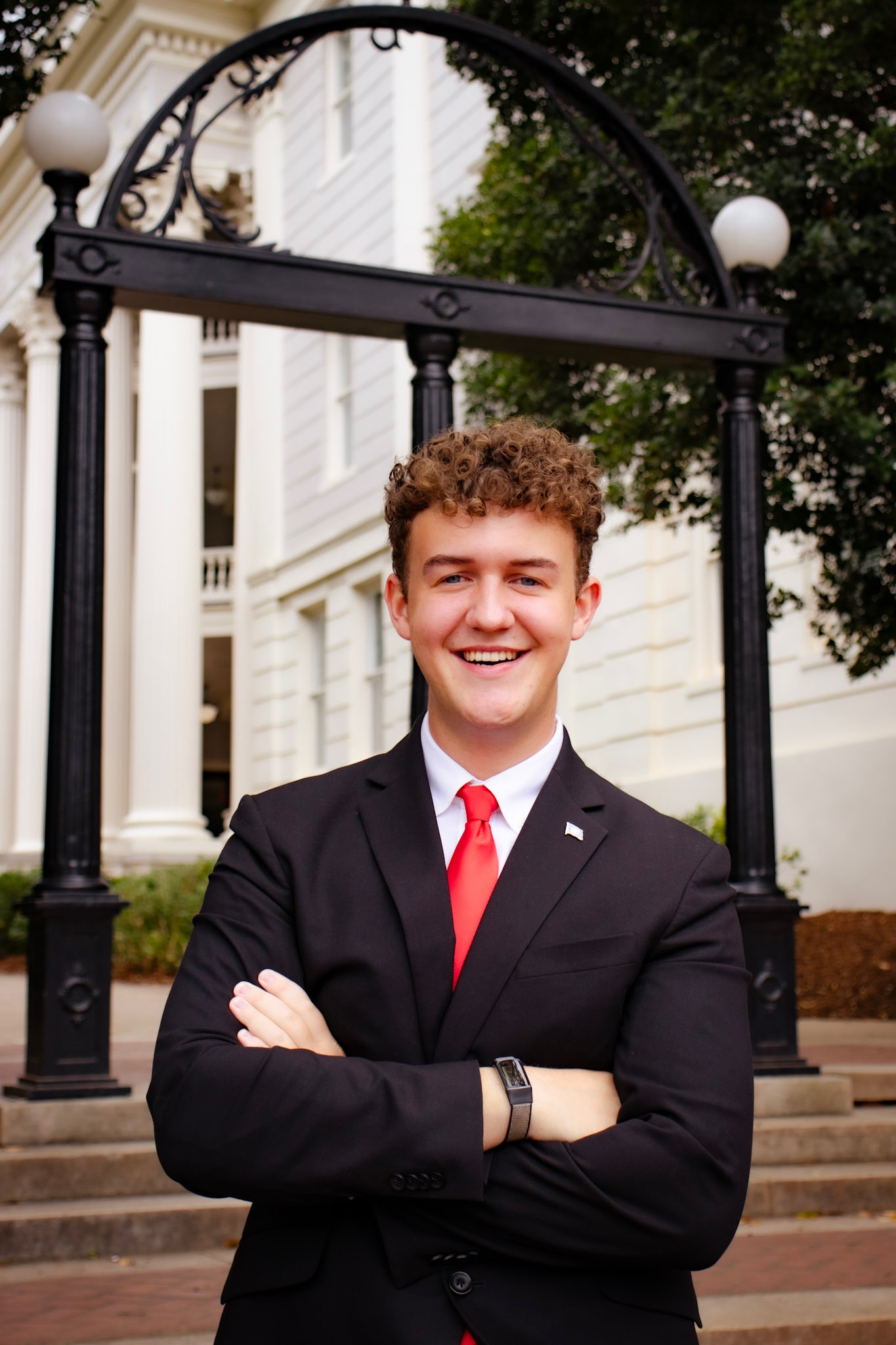
When Calvin Rausch challenged herself to pursue a spot on the TEDxUGA 2023 stage, she thought her topic was obvious. For Rausch, service was always the point. The Marietta native volunteered through high school and college, including service in East Africa. At UGA, she leveraged that attitude into a degree in international affairs and political science, a certificate in nonprofit management, leadership in student government, and the creation of university programs addressing food insecurity and professional readiness among students.
“TED had always been something that I wanted to do,” said Rausch. “Public speaking is such a fun opportunity to meet and share ideas and collaborate. I knew I wanted to talk about service, and assumed that I had to have a study-based approach. So I tried to tie in international affairs and political science: how can service negatively impact a community in ways that you may not expect?”
Rausch, who self-nominated, submitted the short application and a two-minute video to UGA’s New Media Institute (NMI), which houses TEDxUGA. She cleared the first hurdle, and eventually landed an in-person interview with the TED team.
Topic guidance from NMI helped her reframe the question, away from academic outcomes and into a call for the right kind of service. The result was “Informed Altruism: Service Shouldn’t Feel Easy,” in which Rausch shared how mistakes from her own volunteer experiences taught her how to serve more intentionally, responsibly, and sustainably.
ASK AND LISTEN
“We should approach service the same way we do any problem: research first,” said Rausch, on stage. “Because today, I pose that service without knowledge is vandalism, not value.”
If research is paramount, she continued, then the experts are the subjects themselves: those looking to serve should ask the right questions of their service targets in order to identify actual needs and craft solutions that fit the context.
“As an organization of service, you cannot expect the served to come to you, or to change their behavior to receive assistance,” she explained. “A strong nonprofit or service organization molds itself entirely to the needs of the community.”
Rausch offered lessons from her own experience, at home and abroad. When she helped found UGA’s Fresh Express Food Pantry in response to worries over food insecurity among students, she pulled a wagon full of produce through Tate Student Center.
Demand was low.
“It was so public,” she explained. “We became known as the veggie cart, on Mondays and Fridays, and people were embarrassed to stop by. It wasn’t central to where most of the folks, by demographic, live, work, or study on campus. And who wants to eat collard greens for a week straight?”
So, once Fresh Express was established in a brick-and-mortar location, Rausch and her team conducted a survey on student food needs and preferences, leading to insight on inventory, privacy, and hours that increased demand and helped needy students during and after the COVID pandemic.
The talk also pulled retroactively from Rausch’s experience in East Africa. The “ask questions” mantra has important applications to participatory development, in which international aid organizations invite native representatives to identify problems and inform and co-design solutions. In Uganda, Rausch supported an initiative designed to treat and prevent chigger infestations in children. She noticed, however, that the free denim “shoes” handed out to protect from infection wound up littering the ground outside the clinic, unwanted.
In her time in Tanzania, Calvin became privy to the same trend. “We encountered the Messai tribe, one of the oldest peoples/societies on Earth,” she explained. “I assumed they would ask for a sink, or a well, or shipments of food. But they were uninterested. . . It is a common misconception in development that all tribal nations are looking to advance [on a Western, Global North] trajectory. They frequently have no interest in straying from their very long histories more than they have already been forced to.”
In her talk, Rausch also challenged volunteers to ask hard questions of themselves, to determine 1) whether you are volunteering for the right reasons, and 2) whether you can contribute what is needed. She shared a slide showing that only 1% of volunteers are actually qualified to perform the required tasks, setting up the problem of applying the right talent to the right problem, and leading to burnout among those with the capacity to serve.
“To organize any [modern] vehicle of service,” she said, “you must be a content creator, and that’s not what a lot of people signed up for. You can’t just put an ad in the newspaper anymore, or slap up a poster in the town square. It’s Instagram and TikTok and email blasts. That’s not everyone’s specialty and is even less likely to be the specialty of, say, a 75-year-old agriculture PhD serving the local farming community.” While adapting leadership styles or personnel can be hard, she shared, nonprofit organizations require much more specialized talent than they once did.
RESPOND
According to Rausch, informed altruism is all about asking, listening, and responding; for some, the response is the challenge. In a world with staggering levels of unmet need, an effective volunteer or public servant must find their own motivation and check their ego at the door.
“I was really concerned that my TED Talk would discourage listeners from helping at all,” she said. “But my message, specifically to my generation, is that the service itself doesn’t have to be big. There is a desire to be a leader, have the title, and consider yourself an authority. There is a lot of sexy service: cutting ribbons, opening doors, and going to galas.
“But,” she continued, “95% of what a good public servant does is so unsexy. The sooner you can find your own internal gratification, the better. Just help, and know that someone who knows better than you about this community, this situation, is in charge. Altruism, at the individual level, is not about seeking leadership for leadership’s sake. Be okay with doing the unsexy, start small, and don’t get overwhelmed.”
Starting in August, Calvin began service with the AmeriCorps at Duke University, as an advocate and federal volunteer for food security among students. When her service ends, in August of 2024, she plans to hike El Camino, before applying to a master’s program in public administration and policy or a similar field. “A lot of people have asked why I am going into the AmeriCorps,” she said. “I was so focused in college on the ‘how’: the ways in which things get done. There are students struggling with professional clothing? The student government opened a clothing closet and ran it for years. Students can’t put food on their plates? How do we implement Fresh Express? I realized that my preoccupation with the ‘how’ was making me stray further and further from the ‘why,’ and had me tumbling on to the next thing.”
Rausch spent time identifying her passions beyond service, and decided to preemptively fight burnout by delaying graduate school and taking her own advice: she turned over the mantle of leadership to serve on the ground.
“I realized that I had spent so much time managing that … I wanted to get my hands dirty, in a place where no one knows me or has preconceptions about who I am,” she explained. “The AmeriCorps seemed to impose a great defined start and end date [on that project]. I would be placed outside of my comfort zone, in such a well-organized and well-established organization that I didn’t have to worry about the implications.”
At the end of her service, she shared, she hopes to be a new person with new career and academic goals. But she doubts that her why, her love of service, will ever fade.
“If I could give advice to anyone reading, remember your why and your passion,” she said. “It doesn’t have to be service. It may mean improving organizations. But if you are not constantly reminded of your why, then maybe you are in the wrong place.”









